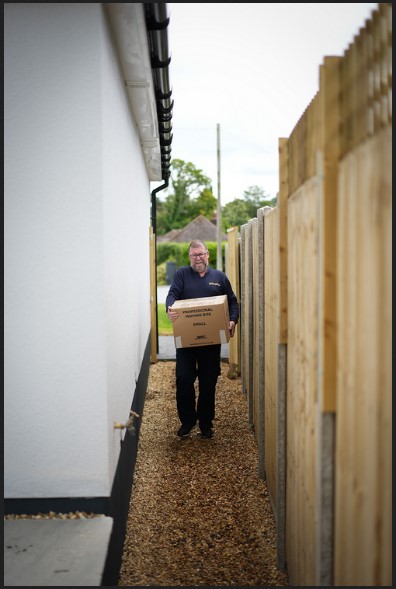Whether it is into your own home or a new rental property, a house move is an exciting if slightly stressful time. However, because people are often unsure of where to begin, it can also be an experience that many homeowners dread. One of the biggest parts of any move is packing up your possessions. If you use the services of a professional removals firm in Bournemouth they will usually provide a packaging service, however, there is usually a cost associated with this. So if you are planning to do your own packing here are the top 10 packing suggestions you can follow which will hopefully help make your move go more smoothly.
Obtain packaging materials beforehand
It serves no purpose to start packing only to discover that you don’t have enough boxes or that the ones you do have are completely inappropriate. Don’t forget that to fit all of your possessions, you will probably need boxes in a variety of sizes and shapes. For example if you have any plastic storage boxes in or around your house they are perfect for storing more delicate objects.
Try to make sure you have an abundant supply of other packing supplies, such as bubble wrap, packaging tape, and labels, in addition to your boxes. Online stores sell complete packaging kits if you are unsure of exactly what you need. If you prefer to source things yourself, you can often find boxes in stores like supermarkets, grocery stores, and other retail outlets.
Start your packing process early.
Always start your packing earlier than you believe you should. The quantity of things you need to relocate completely determines how long it will take to pack. Starting two months in advance and packing a box per day for a large house is excellent, although one month would be fine for a smaller property. Obviously, this is not an exact science, but you get the concept.
Pack up Rooms and Items you Use Least First !!!!
Perhaps begin in the loft, attic, or extra bedrooms and work your way down. Items that aren’t being used right away should also be packed first. The best examples of this are seasonal goods like gardening tools, Christmas lights, and decorations. Sorting through boxed items on a regular basis makes deciding what to retain, donate, or give away easier.
Use the Move to Donate and Declutter
Use the impending move as a justification to get rid of items you have been holding onto merely out of habit. You have a few alternatives for getting rid of things, including donating them to charities or selling them on eBay to get a little additional cash to help with the move.
Create a Complete Inventory
These are quite useful in making sure everything runs as it should. All boxes should be clearly labelled to avoid playing box roulette on moving day. To help make sure the day itself runs to plan, why not upload your inventory to your phone or tablet.
Pack Room by Room
One of the most important pieces of advice when it comes to packaging is one that, for some reason, often goes unheeded. Whether it is preferable to pack up your items by room or category is a topic of frequent discussion. Because it will keep you organised and benefit your moving company, we advise packing items by room.
Reverse Unloading and Unpacking
When unloading and unpacking your possessions you should do it from the top floor to the bottom floor. By the end of the day, there is every chance the last thing you’ll feel like doing is climbing the stairs. Leaving the downstairs rooms till last will make moving the last few things much easier.
Keep all of your valuables in one location.
Make sure to keep all of your valuables in one location and take a thorough inventory of everything within it. You should be able to avoid losing any of your treasured possessions by doing this. You may always hire a safety box from your bank for the duration of the transfer if you want to be extra certain.
Utilise plastic bags for all liquids.
Similar to while travelling, make sure anything that could spill out and cause damage is transported securely to prevent the potential of their leaking onto other items. Use plastic bags that can be closed, like freezer bags, so that the contents will stay in the bag even if the bottle is accidentally opened.
Bring all of your paperwork with you.
Birth certificates, passports, bank and credit card statements, and other important documents fall into this category. Pack them together and put them in your car if they can all fit in one box. You must keep all personal information as secure as you can given how prevalent identity theft has become.
While by no means comprehensive, this list will undoubtedly contribute to a less stressful moving process.
